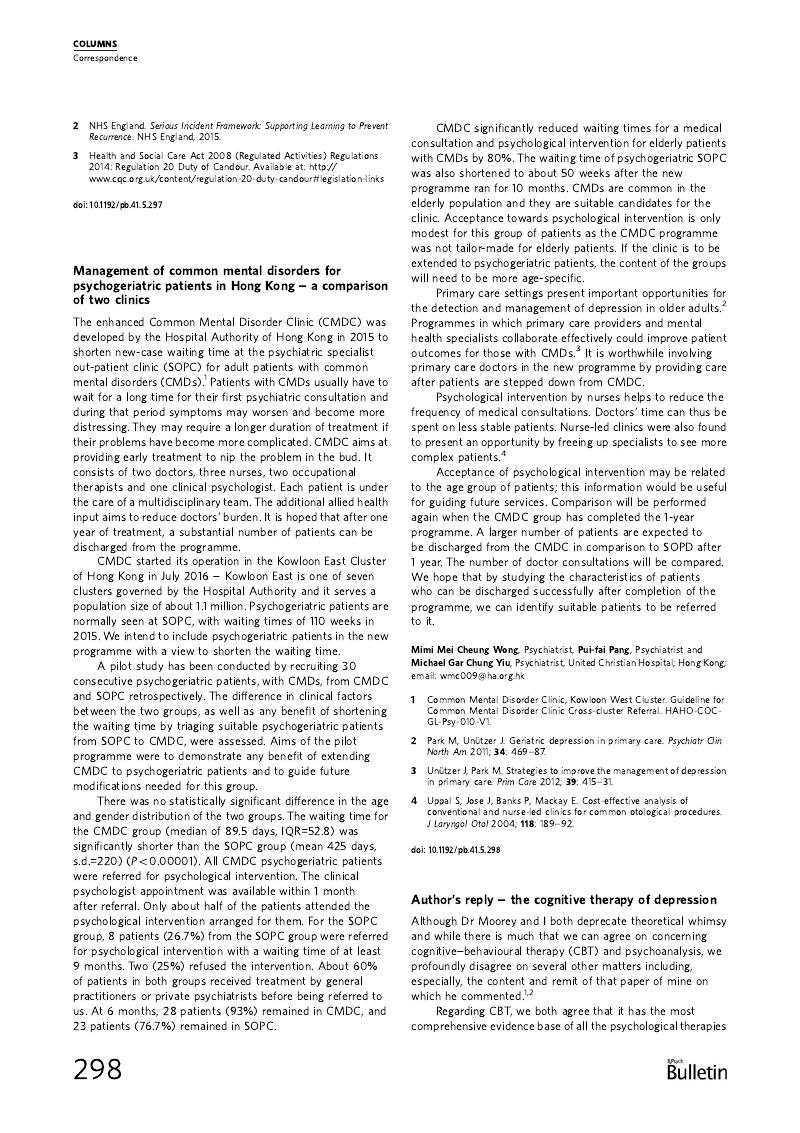No CrossRef data available.
Article contents
Author's reply — the cognitive therapy of depression
Published online by Cambridge University Press: 02 January 2018
Abstract
An abstract is not available for this content so a preview has been provided. As you have access to this content, a full PDF is available via the ‘Save PDF’ action button.

- Type
- Columns
- Information
- Creative Commons
- This is an open-access article published by the Royal College of Psychiatrists and distributed under the terms of the Creative Commons Attribution License (http://creativecommons.org/licenses/by/4.0), which permits unrestricted use, distribution, and reproduction in any medium, provided the original work is properly cited.
- Copyright
- Copyright © 2017 The Authors
References
1
Moorey, S.
The cognitive therapy of depression rests on substantial theoretical, empirical and clinical foundations: a reply to Dr Gipps. BJPsych Bull
2017; 41: 272–5.Google Scholar
2
Gipps, RGT.
Does the cognitive therapy of depression rest on a mistake?
BJPsych Bull
2017; 41: 267–71.Google ScholarPubMed
3
Whiteford, HA, Harris, MG, McKeon, G, Baxter, A, Pennell, C, Barendregt, JJ, et al. Estimating remission from untreated major depression: a systematic review and meta-analysis. Psychol Med
2013; 43: 1569–85.CrossRefGoogle ScholarPubMed
4
Hans, E, Hiller, W.
Effectiveness of and dropout from out-patient cognitive-behavioral therapy for adult unipolar depression: a meta-analysis of nonrandomized effectiveness studies. J Consult Clin Psychol
2013; 81: 75–88.Google Scholar
5
Vittengl, JR, Clark, LA, Dunn, TW, Jarrett, RB.
Reducing relapse and recurrence in unipolar depression: a comparative meta-analysis of cognitive-behavioral therapy's effects. J Consult Clin Psychol
2007; 75: 475–88.CrossRefGoogle ScholarPubMed






eLetters
No eLetters have been published for this article.